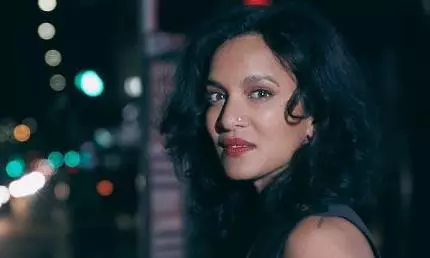Healing Through Music: Anoushka on Her Mini-Album Trilogy and Oxford Honour

Sitarist Anoushka Shankar, who released the second chapter of her mini album ‘How Dark It Is Before Dawn’, expresses gratitude for the honorary degree from Oxford University, her father Pt. Ravi Shankar’s influence, and ‘Jugalbandi’ in a freewheeling chat with Deccan Chronicle.
Congratulations on receiving the honorary degree from the University of Oxford. How does it feel?
It was incredible. I feel really grateful for something like this. It’s a huge honour. And yes, it was my first honorary degree, so it felt really special, especially from Oxford University.
Your mini-album trilogy has been groundbreaking. What was the inspiration behind this project?
Working on this series of mini-albums has been a process of releasing music, not knowing where it’s going to go. Really, even I did not know the journey. But what has emerged is music that is hopefully healing for people and for the world, given the struggles and difficulties we face. Perhaps I needed to make music that felt tender and healing for myself as well.
Chapter one explores finding peaceful or nostalgic moments even in difficult times, and sometimes in those moments we find profound connections. Chapter two is about the necessity of taking breaks to recharge and redirect ourselves as individuals and as a planet. Just like we all rest at night. I believe we’re overdue for a big stop to reassess our direction. Chapter three, still in process, is a hopeful ending of the latter —a space of light, energy, and strength after healing and pausing.
You have done a lot of collaborations. What do you think is the key to successful creative partnerships?
In my experience, it would be helpful to approach any collaboration with a spirit of curiosity to learn from the other person and to grow from that experience with mutual respect. One tradition is not greater than another, and ego should be left at the door. In collaboration, the strongest idea for the story or piece is the one that should be used. I think even if we watch a lot more Jugal Bandi culture, for example, a lot of duets can seem like two people trying to outdo each other, and sometimes it is fun.
As a renowned sitar player and composer, how do you see traditional Indian music evolving in the modern era?
Our classical music has always evolved, adapting through generations as an oral tradition. So that is a part of its DNA to evolve and adapt. Changes happen quicker now, making them more discernible, some good and some challenging. It’s hard to generalise. There’s greater accessibility and opportunities to reach more people, which is great. Art plays a hugely important role, providing spiritual connection, uplifting people, and bringing them back to their hearts from an overly busy material life.
How do you believe music can be a catalyst for change?
Sometimes it can be very dramatic. Music can gather people, share messages, and raise funds, as my father did with the Concert for Bangladesh. Even in smaller ways, music brings peace, empathy, and connection, making people grow and expand as human beings. Each time a song is released in the world and there are people out there listening to it and healing or feeling, that’s giving something good to the world.
How has your father’s, Pt. Ravi Shankar’s legacy influenced your own musical journey?
My father, as my teacher, and my mother’s influence were shaping my development as a musician and person. Everything I do, including my non-classical work and my own sound, stems from learning classical sitar from my father.
A piece of advice from your father that has stuck with you?
It was a lifetime of living with him and learning with him. It’s not one thing, but his humility around music. Despite being regarded as a master, he approached music like a student, always seeing more to learn. That perspective has stayed with me.
How do you balance traditional Indian music with modern influences and experimentation in your work?
You have to trust it. Classical music was my beginning, but I find fulfilment in creating music that fully represents who I am, including crossover work. This doesn’t threaten classical music; everything has its space and time. The balance comes from being authentic and making what feels truthful at the time.
You had guidance from your father. What would be your advice to aspiring artists without such mentorship?
Learning and practice are central. This can look classical and conventional, like learning from a guru, or modern, like watching YouTube videos and jamming with friends. It’s about taking in the work that inspires you and challenging yourself to create. Marketing and presentation don’t matter if you’re not inspired and practising.
Each concert is new for you. Do you analyse your performances?
To an extent. I usually know immediately if something didn’t work. When building a new show, I listen back more to the first few performances to understand the impact from the outside. This helps me refine the flow and connections between songs. For my own performance growth, I tend to know what needs to change just from experience.
What are your upcoming projects and collaborations?
I’m completing Chapter 3 and working on another trio project with some wonderful musicians. I’m also looking at potential film composing opportunities. We are still touring, though it’s quieter in the second half of the year after a busy eight months. There are still some big shows coming up, so I’m staying fit for those.

